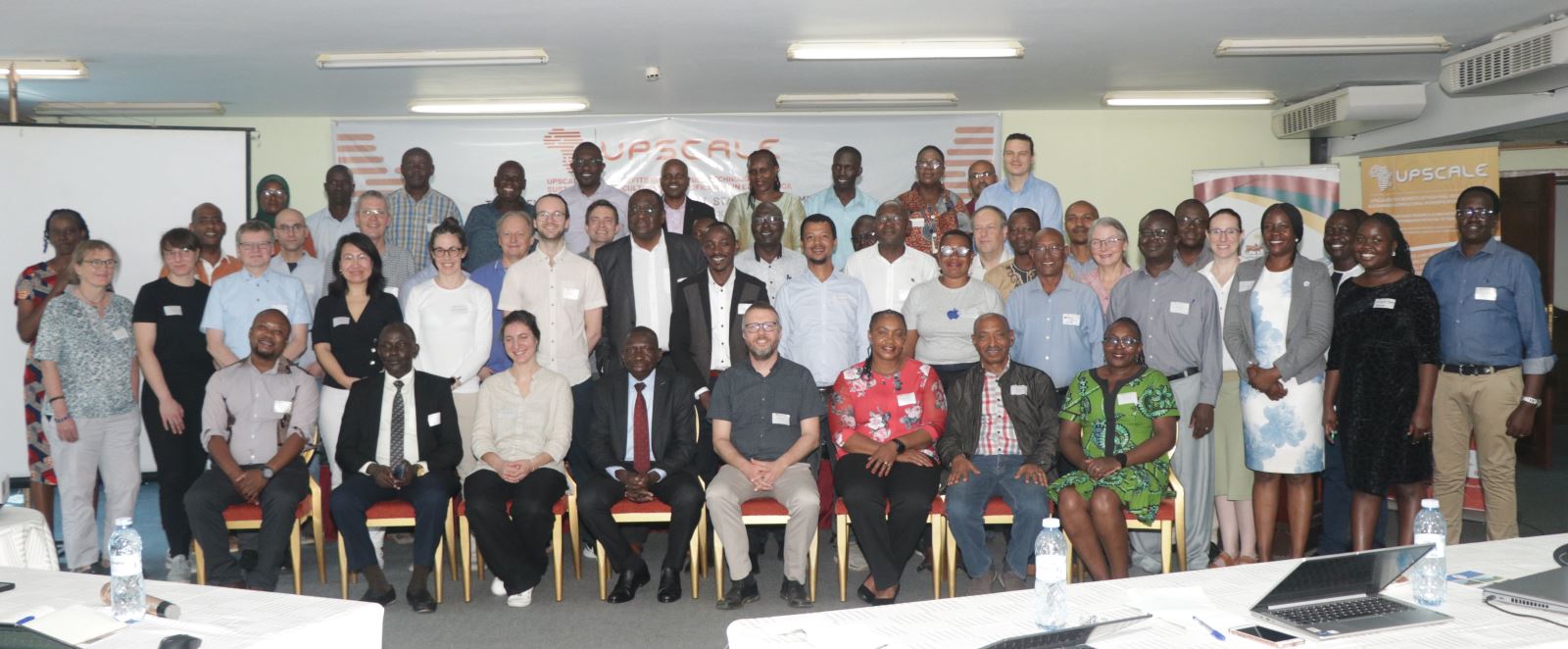Head of LED on the "Upscale" advisory committee
The yearly UPSCALE-Meeting took place in Entebbe, Uganda at the end of January.
The UPSCALE research project aims to significantly improve food security, livelihoods and resilience to climate change in sub-Saharan and East Africa. The central aim is to reduce the environmental impact of agricultural practices as much as possible or even compensate for it completely.
LED Managing Director Andreas Sicks has been a member of the UPSCALE Advisory Committee since 2020. In this role, the expert in development cooperation and food systems took part in the UPSCALE* annual meeting in Entebbe, Uganda, at the end of January. Around 70 representatives from 18 partner organisations from four European and six African countries shared their experiences and research findings. Sustainable push-pull technology (PPT) (link to Upscale website) plays a central role in achieving the ambitious goals mentioned. Andreas Sicks, is convinced of the demonstrably transformative potential of PP technology and cultivation methods and supports the UPSCALE project's goal of expanding the ecological method from individual fields to larger agricultural landscapes and regions in East Africa and from cereals such as millet and maize to other crops and cultivation systems.
The LED supported the push-pull cultivation method from 2020 to 2022 (see LED Yearly Report 2022). It can significantly increase crop yields and avoid the use of pesticides
Video explaning of Push-Pull-Technology
*UPSCALE is a five-year research and innovation project with a budget of 7.66 million euros, which will run until 2025 under the leadership of the Justus Liebig University Giessen (DE)

